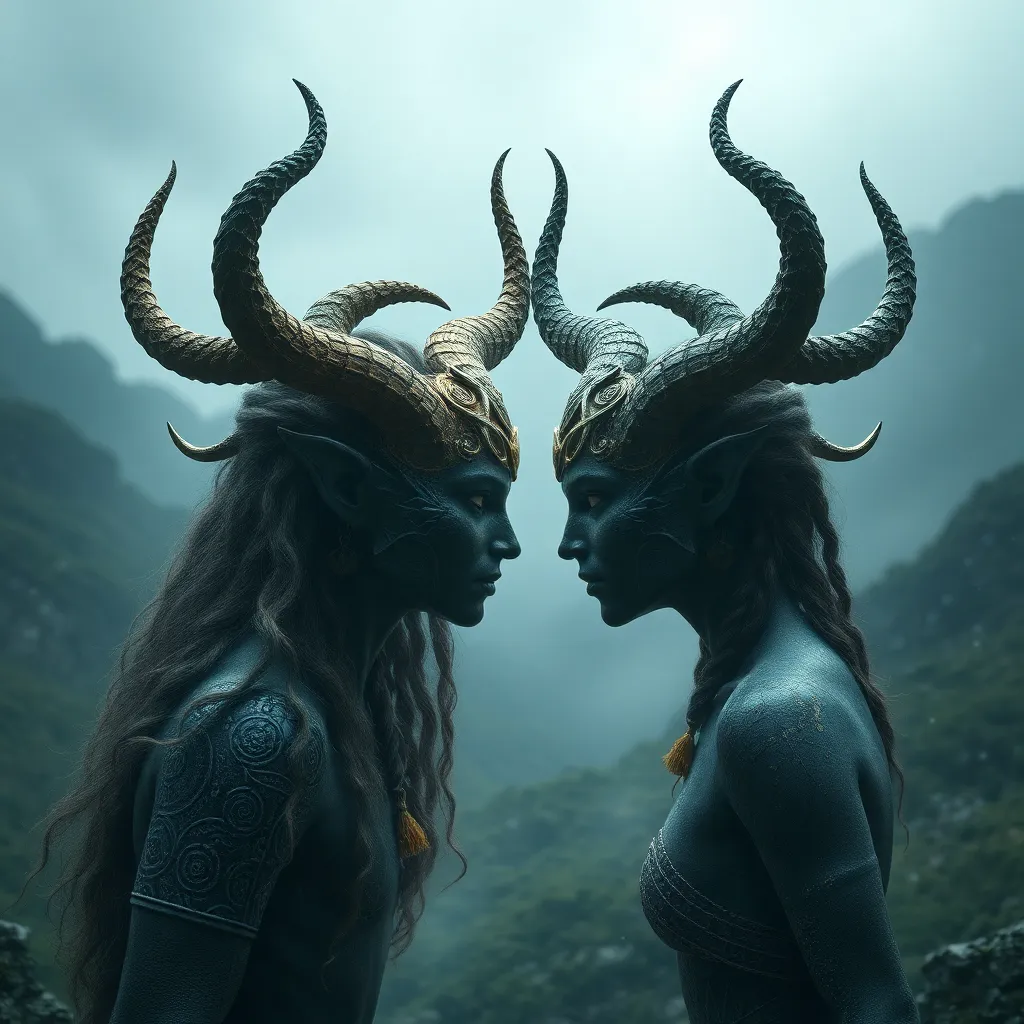Indonesian Mythology: Stories of Sacrifice and Honor
Indonesian mythology is a rich tapestry of stories passed down through generations, filled with powerful gods, supernatural creatures, and epic tales of heroism. These myths offer deep insights into the values and beliefs of Indonesian culture, with themes of sacrifice and honor woven throughout the narrative fabric. These themes are not merely plot devices but reflect deeply held societal values that shape the way Indonesians perceive the world and interact with each other.
The Land of the Gods: An Introduction to Indonesian Mythology
The Indonesian archipelago, with its diverse landscapes and rich culture, has fostered a unique and vibrant mythology. It is a world where powerful deities reside in the heavens, mythical creatures roam the earth, and spirits inhabit the natural world. The stories of these gods, goddesses, demigods, and creatures are incredibly diverse, drawing upon the rich tapestry of Indonesian traditions and beliefs. From the Balinese myths of the gods of Mount Agung to the Sundanese legends of the mystical creatures inhabiting the jungles, each region boasts its own unique collection of tales.
Sacrifice as a Foundation: Exploring the Role of Sacrifice in Indonesian Myths
Sacrifice, in its various forms, plays a central role in Indonesian mythology. It is often depicted as a necessary act, a way to appease the gods, achieve a greater good, or fulfill a sacred duty. Sacrifices in these stories can be material, such as offerings of food or precious objects, or they can be personal, involving the giving up of something dear, like time, possessions, or even life itself. These acts are not seen as mere acts of giving but as a symbolic exchange, a way to forge a connection with the divine and bring about positive change.
The Weight of Honor: Examining the Concept of Honor and its Importance in Indonesian Stories
Honor is a cornerstone of Indonesian mythology, closely linked to the concept of kehormatan. It encompasses a sense of duty, integrity, and respect for oneself and others. Characters in these myths often face situations that test their honor, requiring them to make difficult choices, uphold their principles, and protect their reputation. Honor is not merely a personal virtue but a social responsibility, a guiding force that shapes their actions and defines their relationships.
The Saga of Batara Guru: A Story of Sacrifice and Divine Power
Batara Guru, the supreme god in many Indonesian pantheons, is often depicted as a powerful and benevolent figure. However, his journey to become a divine leader is marked by sacrifice. He willingly relinquishes his immortality and descends to earth to help mortals, demonstrating his compassion and commitment to upholding justice. This act of selflessness establishes his authority and earns him the respect of gods and mortals alike, showcasing the power of sacrifice to elevate one's status and secure a place of leadership.
The Tale of Raden Inu Kertapati: A Hero’s Honor Tested by Sacrifice
Raden Inu Kertapati, a legendary warrior from Javanese mythology, epitomizes the ideal of honor. He is known for his bravery, loyalty, and unwavering commitment to his king and his people. However, his unwavering devotion is tested when he faces a difficult choice: sacrificing his own happiness to protect his kingdom. This story explores the tension between personal sacrifice and fulfilling one's duty, reminding us that true honor often necessitates putting the needs of others above our own.
The Myth of Sang Hyang Tunggal: The Ultimate Sacrifice and the Birth of the World
In the heart of Indonesian mythology lies the story of Sang Hyang Tunggal, a powerful deity who embodies the ultimate sacrifice. This myth speaks of a time before the world existed, a time of emptiness and void. Sang Hyang Tunggal, existing alone in this vast nothingness, decides to create the world, but this act requires a tremendous sacrifice. He splits himself into two, creating the female deity Dewi Sri and the male deity Batara Guru. This act, a cosmic self-sacrifice, marks the beginning of creation, bringing life and order to the universe. Sang Hyang Tunggal, in essence, sacrifices his own unity to bring forth a world of diversity and complexity. This story highlights the power of sacrifice, not just as a way to appease the gods, but as a necessary act of creation and the foundation of existence itself.
The Power of Selflessness: How Sacrifice Creates a Path for Redemption
Indonesian myths often portray sacrifice as a means of redemption. When characters fall from grace or commit wrongdoings, they often seek atonement through acts of selflessness. These acts of sacrifice, whether they involve offering precious possessions, enduring hardships, or even relinquishing their own desires, are seen as a way to cleanse themselves of past transgressions and regain favor with the gods. This theme underscores the belief that even the most flawed individuals can find a path to redemption through acts of sacrifice. It encourages a sense of forgiveness and understanding, reminding us that everyone has the capacity for change and growth.
The Burden of Duty: Honor as the Guiding Principle for Heroes and Villains Alike
The concept of kehormatan extends beyond personal virtue. It shapes the motivations and actions of both heroes and villains in Indonesian mythology. Heroes like Raden Inu Kertapati are driven by their duty to protect their kingdom and uphold justice, even if it means making sacrifices. On the other hand, villains are often motivated by a sense of dishonor, seeking to restore their reputation or avenge past wrongs, even if it means resorting to evil means. The weight of honor, therefore, becomes a powerful force, shaping the destinies and driving the actions of both the righteous and the corrupt.
The Legacy of Sacrifice and Honor: The Enduring Impact on Indonesian Culture
The themes of sacrifice and honor deeply ingrained in Indonesian mythology have had a lasting impact on its culture. They inform the values, traditions, and social interactions of the Indonesian people. From the rituals and ceremonies honoring ancestors to the strong emphasis placed on family and community, these themes are woven into the fabric of daily life. They are evident in the way Indonesians approach their work, their relationships, and their sense of responsibility towards society. The influence of these themes is powerful, reminding us that sacrifice and honor are not just elements of folklore but enduring values that continue to shape the Indonesian identity.
Theories of Sacrifice and Honor: Psychoanalytic and Anthropological Perspectives
The prevalence of sacrifice and honor in Indonesian mythology has intrigued scholars from various disciplines. Psychoanalytic perspectives suggest that the themes reflect a deep-seated human need for order and stability in a chaotic world. These myths offer a way to make sense of the complexities of life, providing a framework for understanding human behavior and the relationship between the individual and society. Anthropological perspectives highlight the role of these themes in shaping social structures and maintaining social cohesion. The emphasis on sacrifice and honor serves to reinforce communal values, promote collective responsibility, and ensure the well-being of the group. By analyzing these themes through multiple lenses, we gain a deeper understanding of their significance not only as cultural concepts but as fundamental human drives.
FAQs about Indonesian Mythology: Sacrifice and Honor
Q: What is the significance of sacrifice in Indonesian mythology?
A: Sacrifice plays a crucial role in Indonesian mythology, signifying the act of giving up something valuable, be it material possessions or personal well-being, to appease the gods, achieve a greater good, or fulfill a sacred duty. It is often seen as an essential act for obtaining divine favor, achieving redemption, or securing a place of leadership.
Q: How does the concept of honor shape the characters in Indonesian myths?
A: Honor, represented by the concept of kehormatan, is a central theme in Indonesian mythology, driving the actions of both heroes and villains. It encompasses a sense of duty, integrity, respect, and social responsibility, shaping the characters’ destinies and motivating their choices, whether it’s upholding justice or seeking revenge.
Q: What is the enduring impact of sacrifice and honor on Indonesian culture?
A: These themes have deeply influenced Indonesian culture, shaping values, traditions, and social interactions. They are evident in rituals, ceremonies, family structures, and the emphasis on communal responsibility, demonstrating the enduring influence of these beliefs on the Indonesian identity.
Q: Why is it important to study Indonesian mythology?
A: Studying Indonesian mythology allows us to understand the cultural values, beliefs, and practices of the Indonesian people. It offers insights into their relationship with the divine, their understanding of the world, and their social structures. By exploring these myths, we gain a deeper understanding of the richness and diversity of Indonesian culture.




